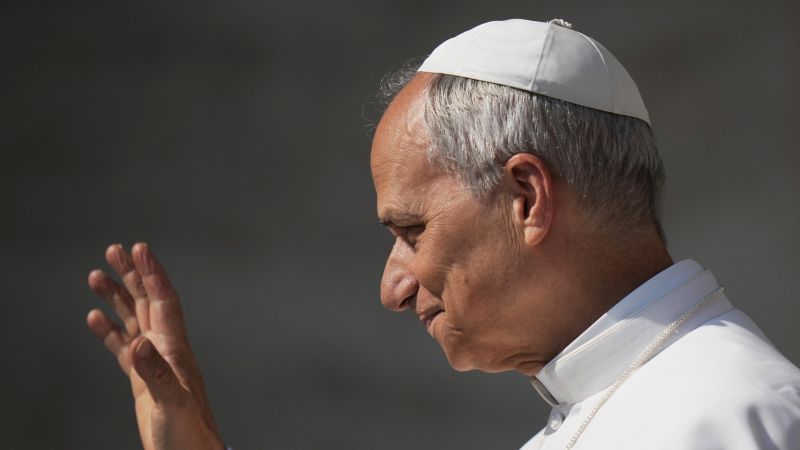Pope Leo XIV’s recent statements regarding the ethical development of artificial intelligence (AI) underscore the significant role that technology plays in modern society, particularly as it relates to human dignity. Addressing a gathering that included Vatican officials and prominent Silicon Valley executives, the Pope emphasized the necessity for tech companies engaged in AI development to commit to an ethical standard that reflects respect for human dignity. This call for accountability comes at a time when AI technology is rapidly advancing, posing both possibilities and threats to society.
In his remarks, Pope Leo XIV articulated that AI should consider the “well-being of the human person not only materially, but also intellectually and spiritually.” This perspective resonates deeply in a world where access to information is unparalleled. However, the Pope cautioned that this extensive access to information must not be misconstrued as a measure of intelligence. He pointed out that knowledge is far broader and more intricate than mere data accumulation, stressing that true intelligence involves critical thinking, insight, and emotional understanding, which are essential elements of the human experience.
The pontiff expressed profound concerns regarding the implications of AI on children, highlighting the potential negative effects on their “intellectual and neurological development.” He stated that the well-being of society is contingent upon ensuring that children are equipped with the opportunities to develop their inherent talents and capabilities. This emphasis on the development of youth aligns with broader concerns about the future workforce and the potential consequences of AI technologies, which could either foster an environment for growth or lead to societal downturns.
The comments from Pope Leo XIV were made during the second day of a two-day conference in Rome focused on the ethical considerations of AI. This conference welcomed representatives from leading tech companies, including industry giants such as Google, OpenAI, and IBM, alongside academic luminaries from renowned institutions like Harvard and Stanford. Together, attendees shared insights into the societal implications of AI, a topic rife with both promising potential and concerning risks.
As AI continues to evolve at a rapid pace, critics have raised alarms about its impact on job security, the spread of misinformation, and its ability to exacerbate environmental issues. While some technological advancements promise enhanced productivity and problem-solving capabilities, the darker side includes the potential for misuse, from deepening inequalities to enabling sophisticated instruments of surveillance. The Pope’s statement pointed to an inherent dichotomy: while AI can be utilized altruistically to promote equality, it can also be weaponized for profit and power, raising existential questions regarding the governance of these technologies.
Although the Vatican does not have regulatory authority, it is increasingly vocal in advocating for ethical technology policy. The Church’s stance is informed by historical precedents. In 2020, the Vatican spearheaded a discussion on “human-centric” AI, which resulted in the Rome Call for AI Ethics—an initiative encouraging the development of ethical AI frameworks. This document, signed by various tech leaders, aimed to promote responsibility in technology deployment, reinforcing the connection between faith, ethics, and technology.
Pope Leo XIV, who succeeded Pope Francis, indicated a clear intention to prioritize the intersection of AI and basic human rights during his papacy. By adopting the name of Pope Leo XIII, who endorsed labor rights amidst the industrial revolution, he draws parallels between the challenges posed by modern technological advances and those faced by workers during the 19th century. His perspective suggests that social teachings of the Church could guide ethical considerations related to contemporary advancements like AI.
In a recent address, the pontiff articulated a need for young people’s spiritual and intellectual development to be steadfastly supported in an era increasingly governed by automation and digital interactions. He warned that as society navigates these technological transformations, human dignity must not become an afterthought amid convenience and efficiency, asserting, “the person is not a system of algorithms.”
Throughout this discourse, the vital discussion of how AI governance is structured must transition from mere profit generation to considerations of social responsibility. In light of proposed policy changes in the United States aimed at curbing enforcement of current regulations, the urgency for ethical stewardship has never been greater. Pope Leo XIV implored tech leaders to recognize and honor the unique characteristics that define humanity as they forge ahead in creating AI technologies. This encapsulation of human dignity serves as both a warning and a guide for the development of AI, prompting stakeholders to consider their social responsibilities amidst the rapid evolution of technology.



